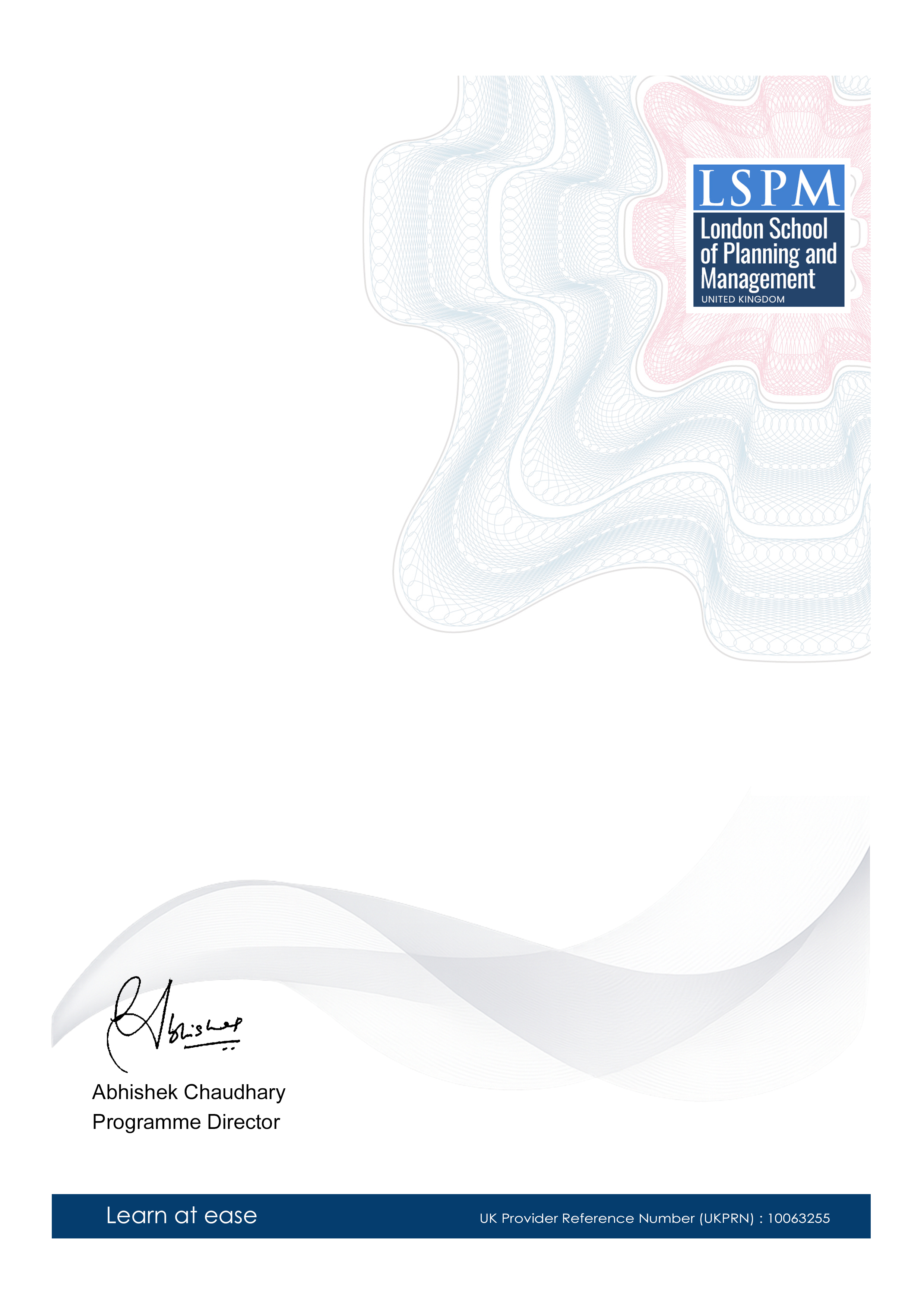Certified Professional in Design of Experiments (DOE) for Technology Innovation
-- viewing nowThe Certified Professional in Design of Experiments (DOE) for Technology Innovation is a comprehensive course that empowers learners with the essential skills needed to optimize product design and development processes. This certification focuses on the principles and applications of DOE, a statistical technique used to determine the relationship between factors and responses in technology innovation.
7,346+
Students enrolled
GBP £ 149
GBP £ 215
Save 44% with our special offer
About this course
100% online
Learn from anywhere
Shareable certificate
Add to your LinkedIn profile
2 months to complete
at 2-3 hours a week
Start anytime
No waiting period
Course details
• Fundamentals of Design of Experiments (DOE): Understanding the basics of DOE, including the importance of statistical methods, experimental design, and data analysis.
• Experimental Planning: Learning how to plan experiments, including selecting the right factors, defining the experimental region, and determining the number of runs.
• Screening Designs: Exploring the different types of screening designs, including full factorial, fractional factorial, and Plackett-Burman designs, and their applications.
• Response Surface Methodology (RSM): Understanding the principles of RSM, including the use of second-order models, optimization, and desirability functions.
• Taguchi Methods: Learning about Taguchi's contribution to DOE, including the use of orthogonal arrays and signal-to-noise ratios for robust design.
• Analysis of Variance (ANOVA): Understanding the statistical techniques used in ANOVA to analyze experimental data, including the calculation of means, standard deviations, and F-ratios.
• Computer Tools for DOE: Exploring the different software tools available for DOE, including Minitab, JMP, and Design-Expert, and their features and capabilities.
• DOE Applications in Technology Innovation: Examining case studies and real-world examples of how DOE has been applied in technology innovation, including the development of new products, processes, and services.
• Advanced DOE Techniques: Delving into more advanced topics in DOE, including mixture designs, evolutionary operation, and Monte Carlo simulation.
Career path
Entry requirements
- Basic understanding of the subject matter
- Proficiency in English language
- Computer and internet access
- Basic computer skills
- Dedication to complete the course
No prior formal qualifications required. Course designed for accessibility.
Course status
This course provides practical knowledge and skills for professional development. It is:
- Not accredited by a recognized body
- Not regulated by an authorized institution
- Complementary to formal qualifications
You'll receive a certificate of completion upon successfully finishing the course.
Why people choose us for their career
Loading reviews...
Frequently Asked Questions
Course fee
- 3-4 hours per week
- Early certificate delivery
- Open enrollment - start anytime
- 2-3 hours per week
- Regular certificate delivery
- Open enrollment - start anytime
- Full course access
- Digital certificate
- Course materials
Get course information
Earn a career certificate

